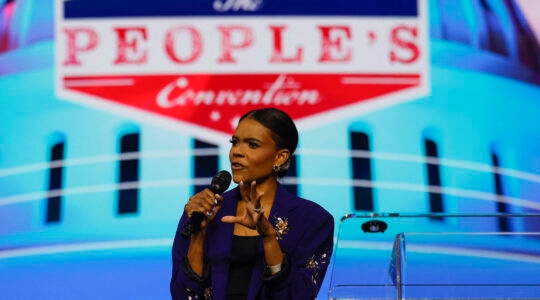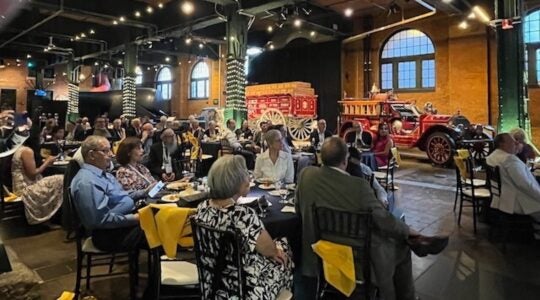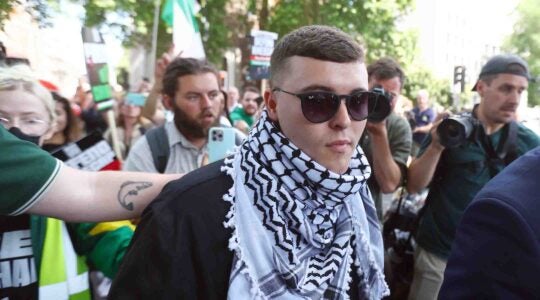Kosovo, as JTA’s Ron Kampeas wrote this week, is eager for Israel to join the roster of nations recognizing it as an independent state. But fearful of setting a precedent that might empower the Palestinians — and of alienating Serbia — the Jewish state has been reluctant to do so.
In April 1999, at the height of the war in Kosovo, Israel felt more generous toward the Kosovars, raising more than $1.25 million in aid, taking in 217 ethnic Albanian Muslim refugees and promising citizenship to those who chose to stay after six months. JTA wrote:
… [F]or this small group, Israel is a guardian angel. They were given a hero’s welcome. Prime Minister Benjamin Netanyahu greeted them, [a 23-year-old refugee] spoke in front of a Knesset parliamentary committee and the group was taken on field trips last weekend to see the country.
Seventy-four found a “safe haven alongside the calm shores of the Israeli Mediterranean” at Kibbutz Ma’agan Michael, where JTA described the scene:
Older men play chess and children frolic amid the white stucco field-school dormitories, but a sadness has descended upon these refugees. Many are desperately calling home to try to locate relatives and friends. All are still coming to terms with what they have left behind and the challenge of rebuilding their lives in a country most know nothing about.
Interestingly, while the refugees were Muslim, they turned down an invitation to attend a mosque at a nearby Arab-Israeli village, JTA reported.
The refugees may be wary of insulting their Jewish hosts and becoming embroiled in another ethnic conflict by showing their affinity with the Muslim community — even though officials with the Jewish Agency for Israel, who are sponsoring their stay, have told them to feel free to practice their religion. More likely, however, the refugees simply do not identify with the local Muslims.
“The Muslims invited us to use the mosque, but we said we are not religious,” explains Emrush Rama, a 19-year-old musician who has two earrings in his left ear. “We have a different way of thinking.”
[Dental student Kreshnik] Bajraktari agrees: “We were not persecuted because we are Muslims, but because we are Albanians,” he says. “We tried to explain this to the local Muslims.”
Three months later, with the situation at home looking more promising — Serbia had withdrawn troops, NATO forces had arrived and the United Nations had set up a peace implementation force — 145 of the refugees, including two “Kosovar sabras” born during the stay in Israel, prepared to return to Kosovo, “all of them now enthusiastic friends of Israel,” JTA noted.
One returning refugee, a dental student named Astrid Kuci, told JTA, “I was lucky twice during the war. Once that my home in Pristina was not destroyed, and then that I had the opportunity to get to know Israel.” The interview with Kuci continued:
“I am very excited to return home, but I am also very sad. I will miss Israel,” said Kuci, who then offered a comment that would be music to the ears of those Israelis who have grown weary of the decades of tensions with their Arab neighbors: “For the first time in my life, I felt peace.”
JTA has documented Jewish history in real-time for over a century. Keep our journalism strong by joining us in supporting independent, award-winning reporting.




